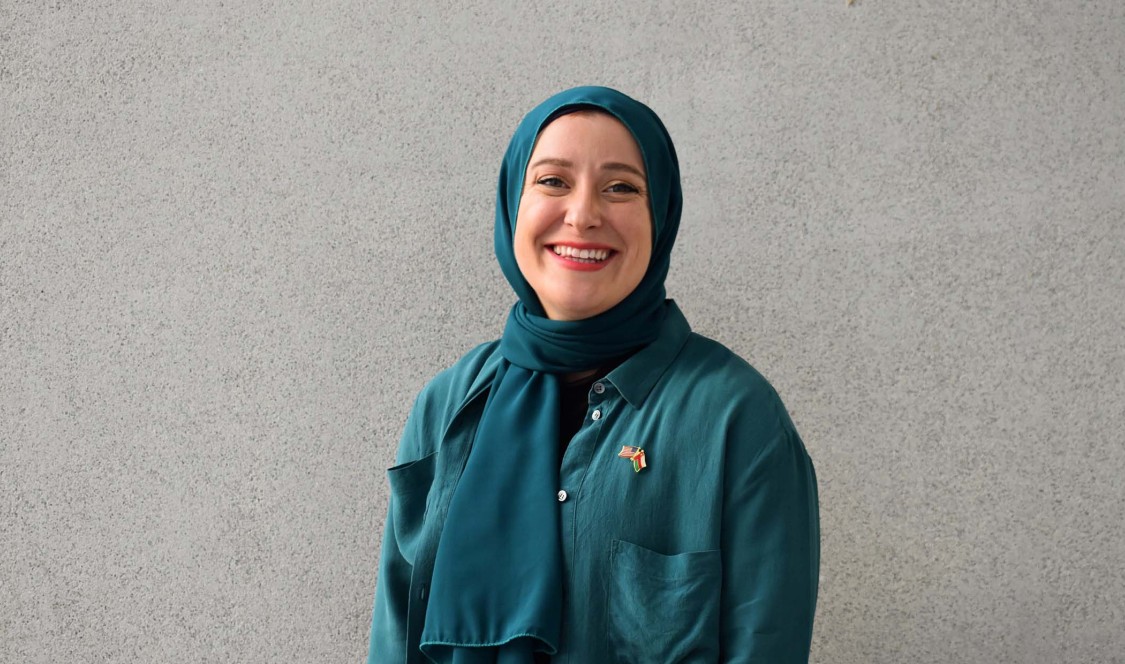As a 2023 Fulbright Scholar conducting research in Oman, Renee Perper ’21 studies the oil-rich country’s strategies of successful clean energy transitions, an opportunity that led her to the United Nations Climate Change Conference (COP28) in Dubai.
Graduating Phi Beta Kappa with Honors as a Middle Eastern Studies major from Claremont McKenna College, Perper’s research explores “Oman’s shift from an oil economy to a diversified, renewable energy-based economy, and its implications for the global community.”
In addition to attending COP28, Perper took part in the Green Hydrogen Summit in Oman. “At the conferences, I was able to gain a greater sense of the technical innovations and rooms for growth in the clean energy field. Yet what was most fascinating to me was being able to explore how conceptions of the ‘global South versus global North’ and current geopolitics are shaping the energy transitions within the Gulf,” she said.
At CMC, Perper enhanced her research skills as a fellow with both the Keck Center for International and Strategic Studies and the Mgrublian Center for Human Rights, and earned both the Department of State’s Critical Language Scholarship (to study Arabic) and a Boren Scholarship, which took her to Oman, where she deepened her language skills and knowledge of Omani culture.
Perper credits CMC Professors Hicham Bou Nassif and Heather Ferguson for helping to diversify her understanding of the Middle East. Before returning to Oman for her Fulbright, Perper worked for the nonpartisan Meridian International Center in D.C., a nonprofit partner of the U.S. Department of State.
Here she shares some of her favorite CMC experiences, as well as how she defines the CMC culture.
Do you have any mentors from your time at CMC?
I would like to shout out the work of Professor Heather Ferguson. Even after I graduated from CMC, I attended one of her alumni talks about the “Women, Life, Freedom” movement in Iran as the movement was still in its nascent stages. I am continuously impressed by how Professor Ferguson is able to intersect history, art, religious theory, politics, and activism in her research. I hope that, one day, I will be able to publish similar work. (In addition, Ferguson served as adviser on Perper’s senior thesis, “The Propaganda of Religious Extremism: Recruitment Strategies of ISIS and al-Qa’eda.”)
I am incredibly grateful for the Keck Center (namely Professor Hilary Appel and Professor Jennifer Taw) and the Mgrublian Center for their support with my extracurricular research. This is work that I’m still able to reference today and imparted me with valuable research skills. I was lucky enough to also take one of my all-time favorite courses at CMC taught by Professor Taw and Professor Appel (“Race/Gender/Identity in International Relations”), which still shapes how I think about my current policy work today.
How would you describe the CMC community?
The CMC community is an extremely engaged community as a whole. I appreciated that in my classes, my fellow students were just as eager to engage in important dialogues and draw connections between our studies and current events.
What were some of your favorite experiences while at CMC?
My favorite moments at CMC were centered around my time working with CMC Advocates. My fellow Advocates were a truly inspiring group of students who were immensely committed to survivors of sexual and domestic violence and ensuring that social advocacy movements are intersectional and survivor-centric.
Why is it important for you to be involved at CMC and /or give back?
CMC was a place that helped me learn just how valuable my voice was. At many schools and institutions, academia sits in a vacuum. In contrast, I loved how at CMC we were continuously encouraged to make inroads into the communities we were studying and tie our interests into real-world applications. CMC is a valuable model for other academic institutions and I hope to support other students to find their own voices as well.

